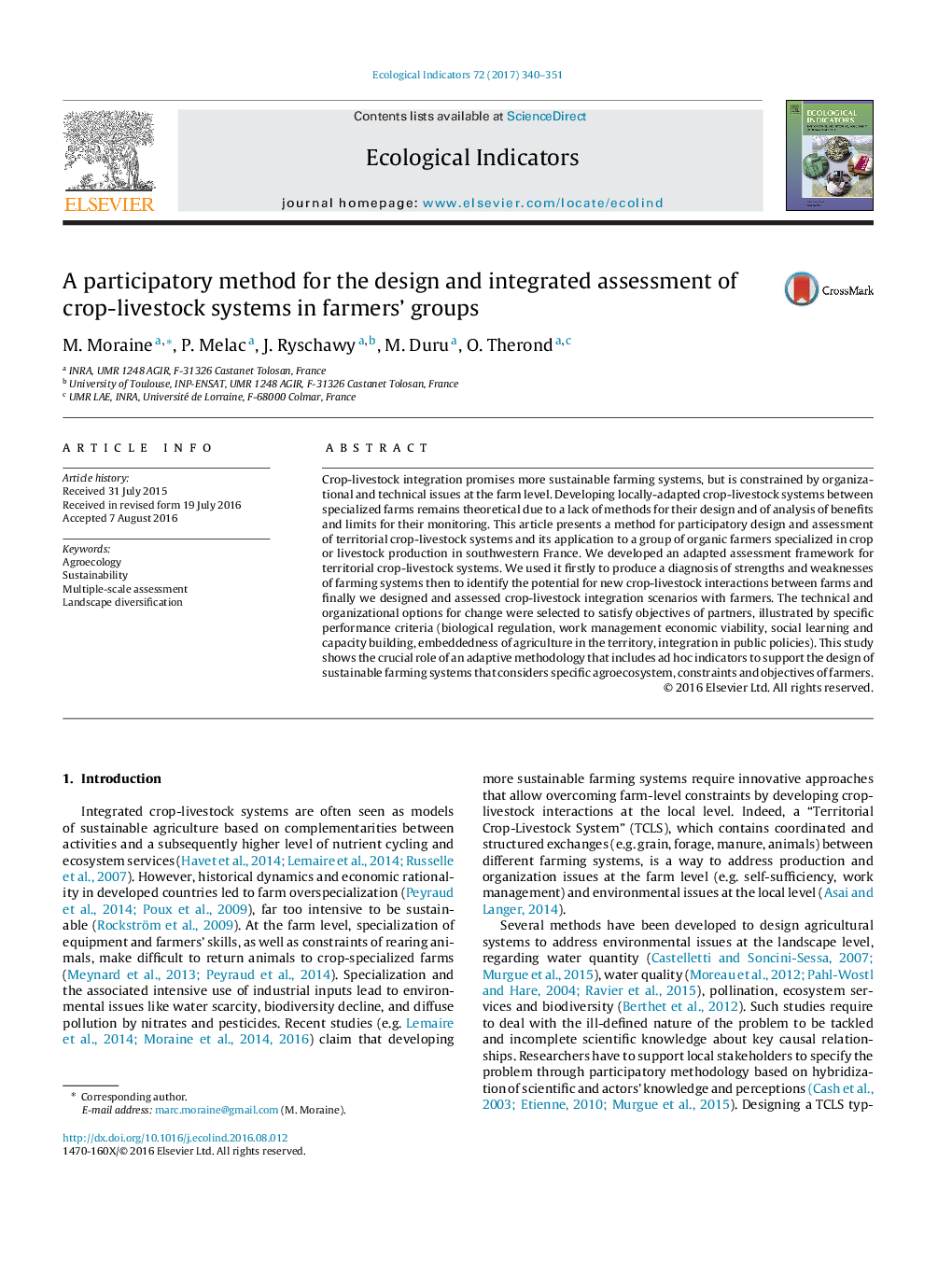| Article ID | Journal | Published Year | Pages | File Type |
|---|---|---|---|---|
| 6292774 | Ecological Indicators | 2017 | 12 Pages |
Abstract
Crop-livestock integration promises more sustainable farming systems, but is constrained by organizational and technical issues at the farm level. Developing locally-adapted crop-livestock systems between specialized farms remains theoretical due to a lack of methods for their design and of analysis of benefits and limits for their monitoring. This article presents a method for participatory design and assessment of territorial crop-livestock systems and its application to a group of organic farmers specialized in crop or livestock production in southwestern France. We developed an adapted assessment framework for territorial crop-livestock systems. We used it firstly to produce a diagnosis of strengths and weaknesses of farming systems then to identify the potential for new crop-livestock interactions between farms and finally we designed and assessed crop-livestock integration scenarios with farmers. The technical and organizational options for change were selected to satisfy objectives of partners, illustrated by specific performance criteria (biological regulation, work management economic viability, social learning and capacity building, embeddedness of agriculture in the territory, integration in public policies). This study shows the crucial role of an adaptive methodology that includes ad hoc indicators to support the design of sustainable farming systems that considers specific agroecosystem, constraints and objectives of farmers.
Keywords
Related Topics
Life Sciences
Agricultural and Biological Sciences
Ecology, Evolution, Behavior and Systematics
Authors
M. Moraine, P. Melac, J. Ryschawy, M. Duru, O. Therond,
